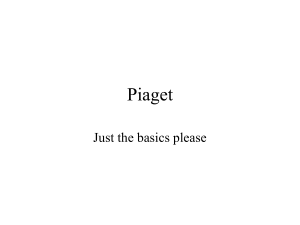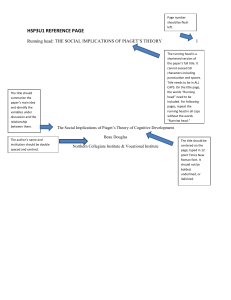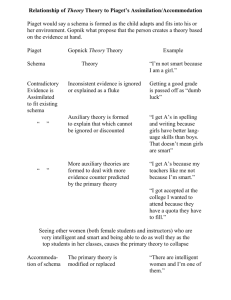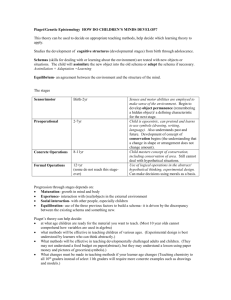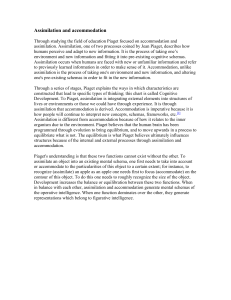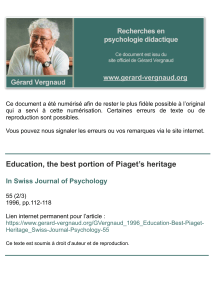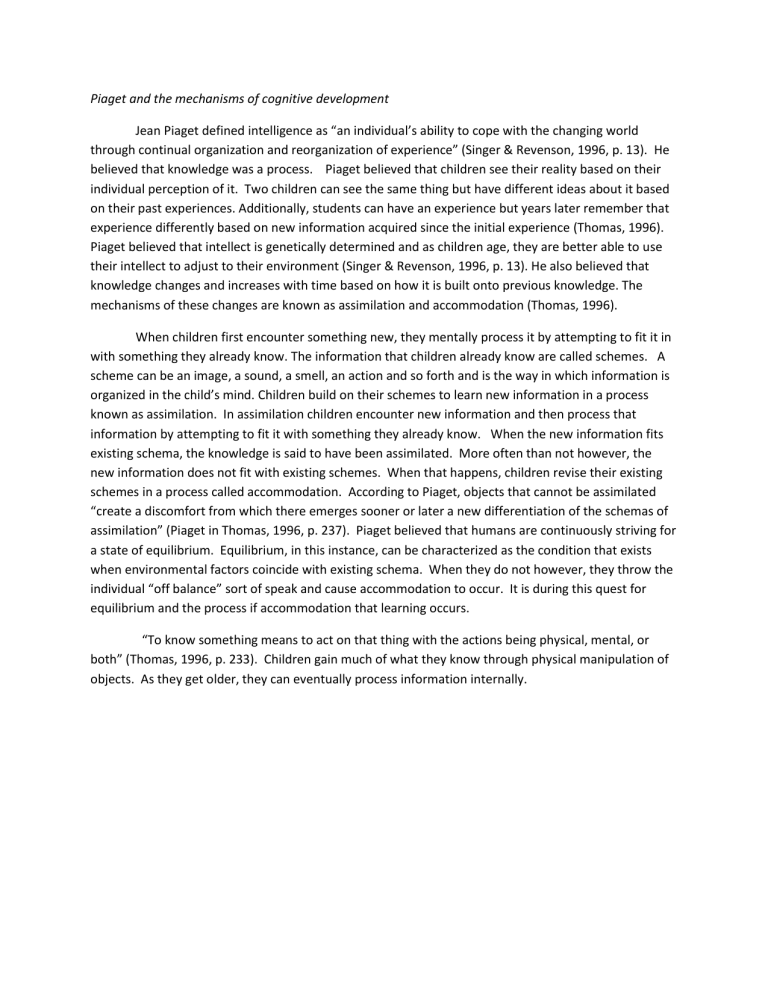
Piaget and the mechanisms of cognitive development
Jean Piaget defined intelligence as “an individual’s ability to cope with the changing world through continual organization and reorganization of experience” (Singer & Revenson, 1996, p. 13). He believed that knowledge was a process. Piaget believed that children see their reality based on their individual perception of it. Two children can see the same thing but have different ideas about it based on their past experiences. Additionally, students can have an experience but years later remember that experience differently based on new information acquired since the initial experience (Thomas, 1996).
Piaget believed that intellect is genetically determined and as children age, they are better able to use their intellect to adjust to their environment (Singer & Revenson, 1996, p. 13). He also believed that knowledge changes and increases with time based on how it is built onto previous knowledge. The mechanisms of these changes are known as assimilation and accommodation (Thomas, 1996).
When children first encounter something new, they mentally process it by attempting to fit it in with something they already know. The information that children already know are called schemes. A scheme can be an image, a sound, a smell, an action and so forth and is the way in which information is organized in the child’s mind. Children build on their schemes to learn new information in a process known as assimilation. In assimilation children encounter new information and then process that information by attempting to fit it with something they already know. When the new information fits existing schema, the knowledge is said to have been assimilated. More often than not however, the new information does not fit with existing schemes. When that happens, children revise their existing schemes in a process called accommodation. According to Piaget, objects that cannot be assimilated
“create a discomfort from which there emerges sooner or later a new differentiation of the schemas of assimilation” (Piaget in Thomas, 1996, p. 237). Piaget believed that humans are continuously striving for a state of equilibrium. Equilibrium, in this instance, can be characterized as the condition that exists when environmental factors coincide with existing schema. When they do not however, they throw the individual “off balance” sort of speak and cause accommodation to occur. It is during this quest for equilibrium and the process if accommodation that learning occurs.
“To know something means to act on that thing with the actions being physical, mental, or both” (Thomas, 1996, p. 233). Children gain much of what they know through physical manipulation of objects. As they get older, they can eventually process information internally.
